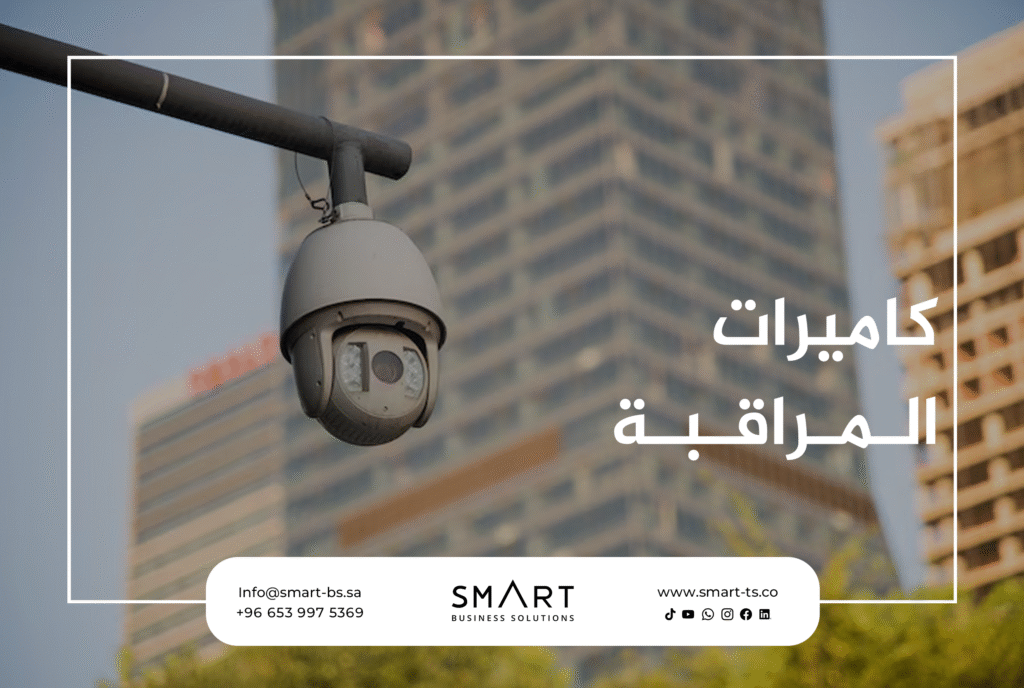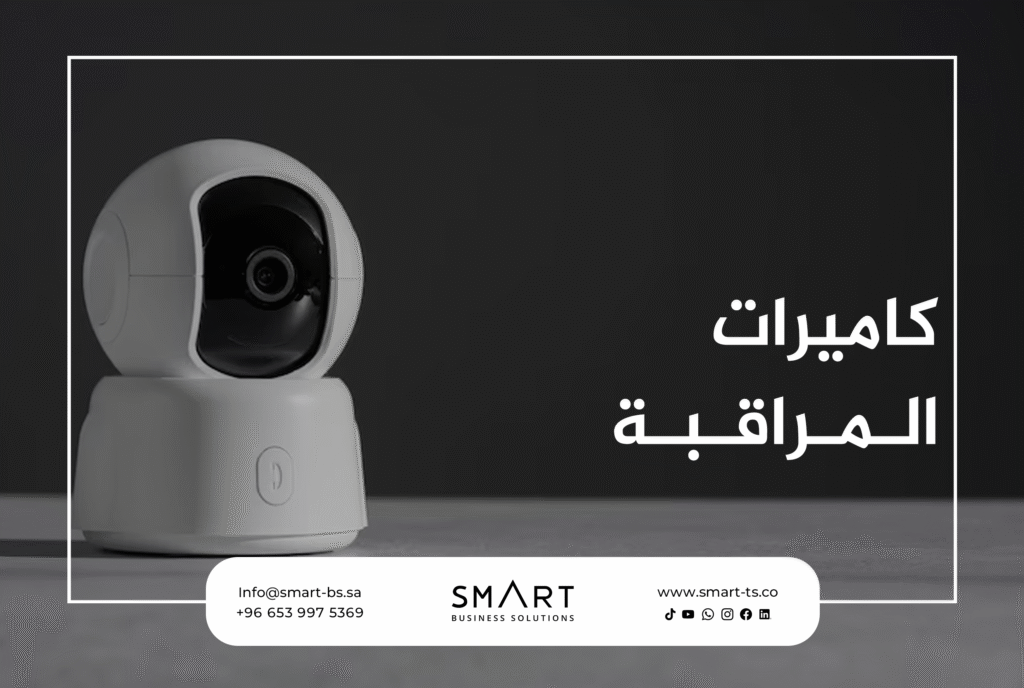With the increasing need for securing property and continuous monitoring of vital locations, surveillance cameras have become an essential and indispensable element in any modern security system. Whether you are managing an industrial facility, a small office, or even looking to protect your home, installing surveillance cameras is a smart and crucial step in addressing security threats
managing an industrial facility, a small office, or even looking to protect your home, installing surveillance cameras is a smart and crucial step in addressing security threats.


What are Surveillance Cameras?
Surveillance cameras are electronic devices used to monitor and record events in a specific area. They can be connected to a local or cloud network for live streaming or video recording for later review. They are used in homes, businesses, government institutions, and even public spaces.
Types of Surveillance Cameras:
- Indoor Surveillance Cameras: Used inside buildings, they are small and sleek in design.
- Outdoor Surveillance Cameras: Weather-resistant and feature night vision capabilities.
- IP (Internet Protocol) Cameras: Work over the internet, offering high resolution and advanced features.
- CCTV (Analog) Cameras: Lower in cost and used in closed systems.
- PTZ (Pan-Tilt-Zoom) Cameras: Can be controlled remotely to zoom in or change direction.
- Hidden Cameras: Used for secret surveillance purposes.
Their Importance:
Without a doubt, surveillance cameras play a pivotal role in securing individuals and property. Some of their key benefits include:
- Immediate deterrence against crime
- Providing documented evidence when needed
- Monitoring workflow and improving productivity
- Peace of mind for homeowners or businesses
How to Choose the Right Surveillance Camera:
Before making a purchase decision, several factors should be considered:
- Purpose of Use:
Do you need the camera for monitoring the entrance of your home, or for overseeing operations inside an industrial facility? Defining the purpose will make it easier to choose. - Image Quality:
The higher the resolution of the camera, the clearer the images will be, making later analysis easier. - Night Vision:
Night vision capability is essential in areas with low light. - Storage:
Do you want to store videos on a cloud or on internal storage? This will impact the cost and flexibility. - Connectivity:
Smart cameras can be linked to mobile apps for monitoring from anywhere in the world. - Budget:
Based on your budget, look for solutions that fit within this range.
Tips for Enhancing the Effectiveness of a Surveillance System:
- Strategically distribute cameras to cover all angles.
- Ensure cables or wireless connections are well-secured.
- Regularly test the system and make sure the cameras are functioning properly.
- Don’t forget the signs that inform about the presence of cameras; they act as a deterrent to criminals.
Current Trends in Surveillance Cameras:
- The use of Artificial Intelligence for video analysis and facial recognition.
- Integration with smart home systems.
- Improving night vision technologies using infrared.
- Video compression techniques to reduce storage size without compromising quality.
Legal Considerations:
In some countries, there are laws that regulate the use of cameras, especially in public spaces. It is essential to:
- Ensure the legality of the monitored location.
- Avoid infringing on privacy.
- Inform employees or residents about the surveillance system.
Famous Surveillance Camera Manufacturers:
- Hikvision
- Dahua
- Axis
- Arlo
- Ring
- TP-Link
Each company offers different advantages, so it’s recommended to compare specifications, warranties, and after-sales services.
How to Install a Surveillance System:
You can either rely on a professional technician or use smart cameras that can be easily self-installed. In both cases, you should:
- Choose optimal installation locations.
- Ensure a stable power source.
- Connect the system to storage or the network.
- Test the system after installation to ensure its effectiveness.
Conclusion:
Installing a surveillance camera system is no longer a luxury but a necessity for protecting both individuals and property.

